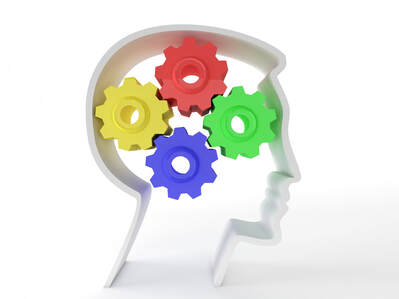all of the selves we Have ever been
 When I was growing up, adults often instructed children, “Use your head!” They implored us to think about our plans and our actions, to explain ourselves. Sometimes they asked us, “Where was your head?” That version was more likely when things went wrong, and we were forced to explain our faulty logic or the lack of forethought that resulted in a bad decision. I always knew that my head was on my shoulders even when I failed to use it. Children today might have to search their pockets or backpacks for their smartphones or tablets. What do parents say today to encourage thinking, planning, and personal responsibility, “Did you Google that?” “Did you run that by Alexa?” Somehow, that just doesn’t seem as weighty. Before digital technology, we had to memorize information, calculate, and find our way without GPS. I can still remember my home phone number from when I was eight years old, but I no longer know the phone number of a single friend because those numbers are all on my phone’s contact list. Should I be concerned about that? I do appreciate the convenience of mobile phones and the sense of safety they provide, but I am surprised by how much people enjoy using their phones and how little pleasure they seem to derive from using their heads. I enjoy puzzles and trivia games, anticipating the end of book or a movie, planning a trip using a map, measuring and adapting proportions in a recipe, solving problems. The mental exercise feels good! To draw from the pleasure of physical exercise and the runner’s high, I experience a thinker’s high. And so, the entire situation puzzles me… A friend of mine who is a middle school librarian bemoaned the day students came to the library complaining they couldn’t find any information on the internet for an assignment that was due. The librarian checked the assignment on file. “You won’t find that information on the internet,” she told them. “The assignment is asking for your opinion.” You know the world has experienced a seismic shift when adolescents have no opinions of their own. More recently, I was in line at an office supply store. The cashier closed her drawer too quickly. When it was re-opened, she had to mentally calculate the change I was owed. The young woman became flustered. She pulled out her smartphone and tapped about on the screen. She quickly gave up on that and turned to the next cashier and asked for assistance. Together the two could not come to an answer. I offered to show them how to count back change like we did in the olden days before the register did all of the calculations for you. “You’re going to teach me how to do it?!” The cashier was incredulous. For a moment, I thought she was being grateful, but where was my head? The cashier refused my offer stating that she had no intention of learning “THAT.” A manager was called to complete the transaction. Now I was incredulous. Why wouldn’t you want to know something that would help you in life and work, something that would let you know when an error was made or when someone is trying to cheat you? Why wouldn’t a person want the joy of feeling capable, competent, and masterful? Of knowing she would never be in that embarrassing situation again? Another puzzle… Ironically, we tend to place value on remembering only when we begin to forget. As we age, we fear that dementia will silently creep up on us stealing our storehouse of knowledge and memories. I wanted to say to that young cashier, “You’ll regret that decision,” something else our parents used to say, but maybe she won’t. Maybe artificial intelligence will completely replace human intelligence with Alexa becoming the primary decision maker for all of us. I wish an expert would come up with a phone-to-mind ratio—a magic number that would reveal the exact amount of brain work that can be done safely by our devices and the amount of thinking we must do for ourselves in order to protect our mental powers. Hmm. Maybe the math has been done. I think I will Google that.
0 Comments
Your comment will be posted after it is approved.
Leave a Reply. |
AuthorLilli-ann Buffin Archives
July 2024
Categories
All
|
 RSS Feed
RSS Feed